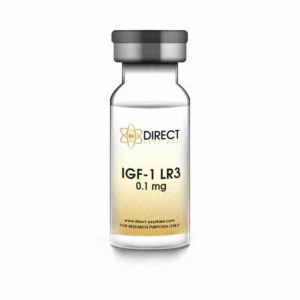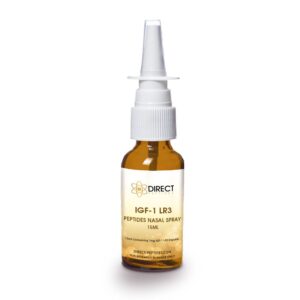IGF-1 LR3, or Insulin-like Growth Factor-1 Long R3, is a synthetic analog of the naturally occurring peptide hormone, IGF-1. It is engineered with an altered amino acid sequence, which includes an extended chain of 13 amino acids at the N-terminus and replacement of the Arg (R) for the Glu(E) at position three. These modifications enhance its biological activity by reducing binding to IGF-binding proteins (IGFBPs) and extending its half-life.
India Research suggests IGF-1 LR3 plays a crucial role in muscle development and repair. By mimicking the action of insulin, it stimulates the uptake of nutrients into muscle cells and promotes protein synthesis, resulting in increased muscle mass and strength. Its longer half-life allows it to act over a more extended period, amplifying its effects on muscle growth.
Showing all 3 results



[1] https://www.ncbi.nlm.nih.gov/ pmc/articles/PMC4665094/
[2] https://pubmed.ncbi.nlm.nih.gov/15240644/
[3] https://www.mdpi.com/ 1422-0067/24/3/2370
[4] https://pubmed.ncbi.nlm.nih.gov/10905488/
[5] https://www.ncbi.nlm.nih.gov/ pmc/articles/PMC5966339/
[6] https://pubmed.ncbi.nlm.nih.gov/34163008/
ALL CONTENT AND PRODUCT INFORMATION AVAILABLE ON THIS WEBSITE IS FOR EDUCATIONAL PURPOSES ONLY.
DISCLAIMER: These products are intended solely as a research chemical only. This classification allows for their use only for research development and laboratory studies. The information available on our Direct Peptides website: https://india.direct-peptides.com is provided for educational purposes only. These products are not for human or animal use or consumption in any manner. Handling of these products should be limited to suitably qualified professionals. They are not to be classified as a drug, food, cosmetic, or medicinal product and must not be mislabelled or used as such.

401 N. Mills Ave, Ste B, Orlando, FL 32803, United States
